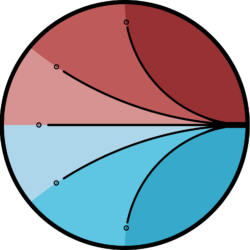We are pleased to confirm the following speakers in the Data-driven Science by Data Science session, on June 2 from 09:00-10:30 CET:
Krishna Agarwal
Bio: Associate Professor in Nanoscopy at the Department of Physics and Technology, UiT The Arctic University of Norway
Title: Artificial intelligence solution for microscopy and nanoscopy
Abstract: Microscopy and nanoscopy present several challenges to adoption of AI. The challenges are often dictated by the lack of ground truth, data deficiency, and the limitations imposed by the physics itself. This talk will present various customized AI paradigms for microscopy and nanoscopy data developed at UiT The Arctic University of Norway.
Renate Grüner
Bio: Director of Research at Helse Bergen and Associate Professor at the Department of Physics and Technology, University of Bergen
Title:
Abstract:
Jan Byška
Bio: Assistant Professor at the Department of Visual Computing, Masaryk University and Adjunct Associate Professor in Visualization at the Department of Informatics, University of Bergen.
Title: Interactive Visual Analysis of Chemical Compound Similarity in Virtual Screening
Abstract: Dimensionality reduction and classification techniques are commonly used to process multidimensional datasets in the modern drug discovery process.
However, the underlying calculations often hinder the interpretability of results and prevent experts from assessing the impact of individual molecular features on the resulting representations.
In this talk, I will describe how multiple coordinated views, linking the low dimensional embeddings with biological activity, selected molecular features, and confidence scores can help to understand complex molecular datasets.
Konrad Tywoniuk
Bio: TMS Group Leader at the Department of Physics and Technology, University of Bergen
Title: Machine learning in particle and nuclear physics
Abstract: Machine learning techniques are currently used ubiquitously in a wide range of modern physics applications from solid-state physics to nuclear and particle physics at high-energy colliders. In this talk, we will give a brief introduction of the principles that should guide ML applications to real-world problems and how such techniques can become efficient tool to guide established techniques, on one hand, and to deal with large and noisy data sets, on the other. We also quote some recent interesting applications of supervised and unsupervised learning in physics.
